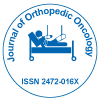Unsere Gruppe organisiert über 3000 globale Konferenzreihen Jährliche Veranstaltungen in den USA, Europa und anderen Ländern. Asien mit Unterstützung von 1000 weiteren wissenschaftlichen Gesellschaften und veröffentlicht über 700 Open Access Zeitschriften, die über 50.000 bedeutende Persönlichkeiten und renommierte Wissenschaftler als Redaktionsmitglieder enthalten.
Open-Access-Zeitschriften gewinnen mehr Leser und Zitierungen
700 Zeitschriften und 15.000.000 Leser Jede Zeitschrift erhält mehr als 25.000 Leser
Indiziert in
- Google Scholar
- RefSeek
- Hamdard-Universität
- EBSCO AZ
- OCLC – WorldCat
- Publons
- Euro-Pub
- ICMJE
Nützliche Links
Open-Access-Zeitschriften
Teile diese Seite
Abstrakt
Nanotechnology: Novel Approach in Orthopedic Oncology
Veena S. Belgamwar, Mayuri R. Khule, Suchitra S. Mishra
Malignant neoplasms represent a genuine public medical condition in the modern world. Assessments from the GLOBOCAN project show that in the year 2015 rate and mortality extends an overall frequency of over 15.2 million new instances of malignancy, and deaths of over 8.8 million. Musculoskeletal tumors are moderately uncommon, as they represent 0.2–0.5% of all malignancies in all ages. Nations like India, China and Japan have an exceptionally low occurrence of musculoskeletal tumors, while the most elevated rate is accounted for in Western Europe and the USA, predominantly osteosarcoma and Ewing sarcoma. Upgrades in careful strategies, chemotherapy and radiotherapy have improved the forecast of sarcoma patients, yet have since arrived at a plateau level. Nanotechnology offers solution in different regions of sarcoma treatment including diagnosis and treatment. In orthopaedic oncology nanotechnology can possibly improve finding, beat drug resistance, fundamental harmfulness of typical host cells and all the more adequately provide medications to malignancy cells. This review focuses on tumor targeting by nanoparticles, literature survey on nanotechnological approaches in cancer therapy, role of nanomedicines in diagnosis and treatment of sarcomas, discusses few nano formulations being used in sarcoma. Finally, the potential role of nanotechnology in addressing the challenges of drug and radiotherapy resistance is discussed.
Zeitschriften nach Themen
- Allgemeine Wissenschaft
- Biochemie
- Chemie
- Genetik und Molekularbiologie
- Geologie und Geowissenschaften
- Immunologie und Mikrobiologie
- Klinische Wissenschaften
- Krankenpflege und Gesundheitsfürsorge
- Landwirtschaft und Aquakultur
- Lebensmittel & Ernährung
- Maschinenbau
- Materialwissenschaften
- Medizinische Wissenschaften
- Pharmazeutische Wissenschaften
- Physik
- Sozial- und Politikwissenschaften
- Umweltwissenschaften
- Veterinärwissenschaften
Klinische und medizinische Fachzeitschriften
- Anästhesiologie
- Augenheilkunde
- Betrieb
- Dermatologie
- Diabetes und Endokrinologie
- Gastroenterologie
- Genetik
- Gesundheitspflege
- Immunologie
- Infektionskrankheiten
- Kardiologie
- Klinische Forschung
- Medizin
- Mikrobiologie
- Molekularbiologie
- Neurologie
- Onkologie
- Pädiatrie
- Pathologie
- Pflege
- Toxikologie
- Zahnheilkunde

 English
English  Spanish
Spanish  Chinese
Chinese  Russian
Russian  French
French  Japanese
Japanese  Portuguese
Portuguese  Hindi
Hindi